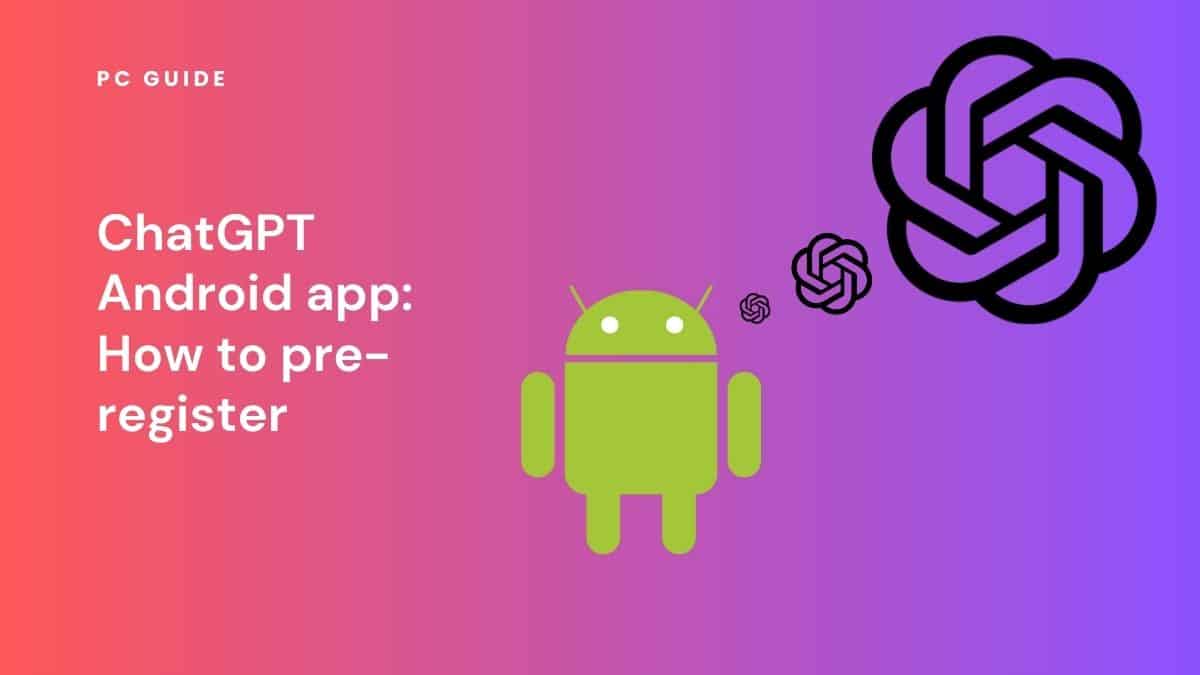ChatGPT Android app – how to pre-register

Table of Contents
Users of Google’s mobile OS have had to wait, but there will be a ChatGPT Android app arriving next week. The app has been on the wishlist of ChatGPT users since the AI chatbot broke cover at the end of 2022. And it’s been top of the list for many since OpenAI’s service gained huge interest in 2023.
Anticipation wasn’t helped by the launching of the first ChatGPT app on May 2023. But the Android ChatGPT app isn’t far away now, and you can pre-register for it too. In this article, we’ll show you exactly how to do it so that you can access the app as it becomes available. If you’re looking for the best ChatGPT apps, for some information on how to use ChatGPT or a bit more of an insight into what ChatGPT is, we have specific articles for those.
Prime Day is finally here! Find all the biggest tech and PC deals below.
- Sapphire 11348-03-20G Pulse AMD Radeon™ RX 9070 XT Was $779 Now $739
- AMD Ryzen 7 7800X3D 8-Core, 16-Thread Desktop Processor Was $449 Now $341
- ASUS RTX™ 5060 OC Edition Graphics Card Was $379 Now $339
- LG 77-Inch Class OLED evo AI 4K C5 Series Smart TV Was $3,696 Now $2,796
- Intel® Core™ i7-14700K New Gaming Desktop Was $320.99 Now $274
- Lexar 2TB NM1090 w/HeatSink SSD PCIe Gen5x4 NVMe M.2 Was $281.97 Now $214.98
- Apple Watch Series 10 GPS + Cellular 42mm case Smartwatch Was $499.99 Now $379.99
- ASUS ROG Strix G16 (2025) 16" FHD, RTX 5060 gaming laptop Was $1,499.99 Now $1,274.99
- Apple iPad mini (A17 Pro): Apple Intelligence Was $499.99 Now $379.99
*Prices and savings subject to change. Click through to get the current prices.
Essential AI Tools
ChatGPT Android app – how to pre-register step-by-step
Step
Open the Play Store
Head to your Google Play Store app on your smartphone or Android device and open it up.
Step
Search for ChatGPT
In the Play Store app you can search for “ChatGPT”.
Alternatively, if you’re currently on an Android device reading this article, you can use this direct link to ChatGPT on the Play Store.
Step
Select pre-register
Once you’re on the app page select pre-register and you will get acess to the ChatGPT Android app as soon as it is released. Simple.
ChatGPT Android app permissions
Judging by the current ChatGPT page on the Google Play Store, the permissions required for the app will be fairly standard when it arrives. The list of permissions is for access to:
- Location (Approximate location)
- Personal info (Name, Email address and Phone number)
- Messages (Other in-app messages)
- App activity (App interactions and Other user-generated content)
- App info and performance (Crash logs, Diagnostics and Other app performance data)
Why was the ChatGPT Android app delayed?
Although we don’t know the reason for the split release of OpenAI’s ChatGPT apps, the company received some reports of odd behavior with its release of the iOS app back in May – notably that the app reportedly led to some overheating and battery drain on the iPhones it was installed on. In any case, it makes sense that OpenAI would want to squash any potential issues before releasing a second app.

